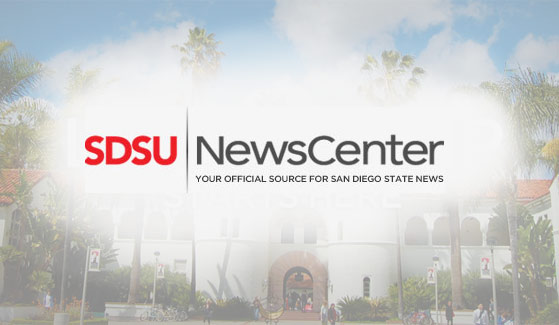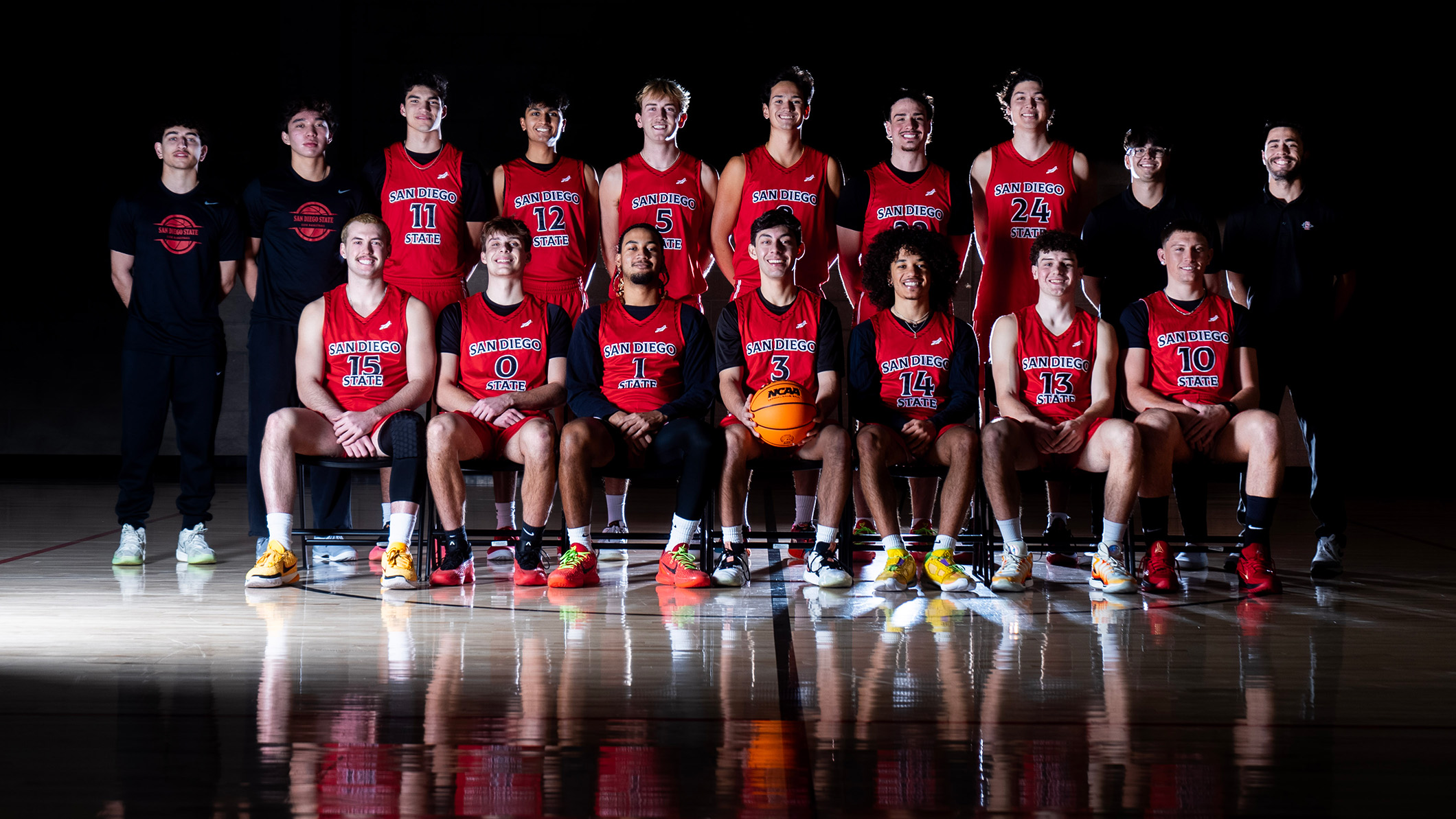Summer Research a Transformative Experience for Undergrads
SDSU is funding roughly 70 students to conduct research with faculty mentors this summer.

“I love research. I have an innate curiosity when it comes to asking the reasons why. Why something is working. Why is it not working?”
When Hannah Liddle walked into San Diego State University professor Byron Purse’s chemistry lab for the first time, something clicked. All of a sudden, the things she read in her textbook transformed from rote facts and abstract ideas into concrete building blocks of knowledge capable of solving big problems and answering important questions.
“I knew instinctively that this is what I wanted to do,” she recalled. “I love research. I have an innate curiosity when it comes to asking the reasons why. Why something is working. Why is it not working?”
Liddle, a biology senior, is working with Purse this summer to investigate new ways to detect the genetic material of germs and viruses. Such methods could help people in resource-limited settings, such as a war zone or developing country, to quickly and accurately identify whether a pathogen they find is dangerous.
“It gives me the opportunity to help others and potentially save lives,” Liddle said, adding that it is rewarding to use knowledge gained in the classroom in the lab. “You actually use these things in everyday life, which is amazing to me because initially you don’t think you’re going to.”
Liddle is one of nearly 70 students participating in SDSU’s Summer Undergraduate Research Program. Each participant works under the direction of a faculty mentor for nearly eight weeks. Each faculty member and student team receives $3,000 in funding, which is used to compensate the student and cover overhead costs. The projects encompass a broad range of research and creative activities, from science to education to the arts.
Providing opportunities for students to participate in research is a priority at SDSU, explained Lisa Kath, director of undergraduate research and creative activities. Research opportunities help students discover which subjects interest them as scholars, allow students to gain the critical skills necessary to enter graduate school, and help underscore the real-life applications of classroom teachings.
“We have faculty that are involved in cutting-edge research and creative activities, and when were able to support students to get a window into what that's like, the experiences can be absolutely transformative,” Kath said.
VIDEO: Scholarship Impact on Undergraduate Research
For example, Zack King is working with dance professor Jess Humphrey to examine the power of emotion in performance as they create a dance and spoken word piece together. King and his fellow dancers are using poignant media—such as commanding songs or iconic films—to elicit emotions and translate those feelings into dance. For King, it’s an empowering experience to be intimately involved in the creative process.
“It gives me a chance to work as a professional in a professional setting,” said King. “You need to be active and alive and ready to engage, even when you’re not being given a task or instructions.”
Step out of your comfort zone
Julia Moluf, a speech language and hearing sciences (SLHS) junior, was in one of her first classes when a professor emphasized the importance of research experience for students considering a graduate degree. Not long afterward, Moluf skimmed faculty bios and research areas on the SLHS website.
She eventually reached out to Sonja Pruitt-Lord, whose research focuses on assessing bilingual preschoolers for language impairments. Pruitt-Lord was happy to have another student in her lab.
“When I became a professor, I said that I would never say ‘no’ to a student who is interested in doing research,” Pruitt-Lord said. “It’s fun to watch students for the first time apply practices that they heard in the classroom and figure out why we talk about them.”
Moluf began working in Pruitt-Lord’s research lab earlier this year, transcribing clinical sessions with children. This summer, Pruitt-Lord invited her to conduct some of the assessment sessions herself, and so far Moluf has worked with more than 60 bilingual preschoolers at Rosa Parks Elementary School in City Heights. Once these assessments are finished, Moluf will join her mentor in the lab to determine their efficacy.
“It's just been really fun to see the process from start to finish, and I better understand how research works,” Moluf said. “I am able to do things now that speech language pathologists are doing in their daily lives. It's really fun for me to get a taste of that.”
Related articles:
The History of SDSU Research: 2000-Present
Student Research Team Finds Meaning in Work
STEM Diversity Programs Put Undergrads on Path for Research Success
Media Contacts:
La Monica Everett-Haynes
Media Relations Director
619-594-0232
[email protected]
Cory Marshall
Media Relations Officer
619-594-0279
[email protected]



